Have you recently found yourself with an old piano that you no longer need or want? Whether it’s taking up space in your home or simply gathering dust in a forgotten corner, you might be wondering how to get rid of a piano efficiently and responsibly.
In this guide, we will explore various options and strategies that will help you navigate the process of disposing of your old piano in a suitable and environmentally conscious manner. From donating and selling to recycling and repurposing, we will explore the feasible avenues available to liberate yourself from your old piano while minimizing waste and promoting sustainability.
The Challenges of Disposing an Old Piano
Pianos are not just musical instruments; they are often cherished family heirlooms or symbols of our love for music. However, there comes a time when parting ways with an old piano becomes necessary.
Whether it’s due to lack of space, an upgrade, or simply the end of its lifespan, getting rid of an old piano can be a daunting task. In this guide, we will explore the various options available, considering both the practical and ethical aspects of piano disposal.
Assessing the Value and Condition of the Piano
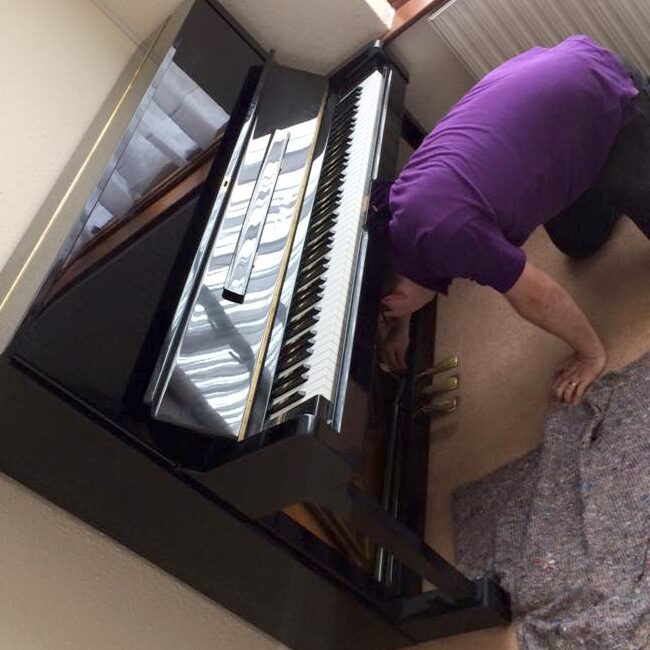
Before diving into the process of disposing of an old piano, it is important to assess its value and condition. This step will help you determine the best course of action, whether it’s selling, donating, recycling, or even repurposing the piano. Here are some factors to consider:
Age and Condition – Evaluate the piano’s age, overall condition, and functionality. Is it still playable? Are there any significant damages or repairs needed? This assessment will give you a clear idea of its potential value in the market.
Brand and Model – Research the brand and model of your piano. Some brands hold higher value due to their reputation and craftsmanship. Knowing this information can help when selling or donating the piano.
Market Demand – Consider the current market demand for used pianos. Factors such as location, trends, and the overall economy can influence the demand and price you may get for your piano.
Options for Disposing an Old Piano
Once you have assessed the value and condition of your old piano, it’s time to explore the various options for its disposal. Here are some common methods:
1. Selling the Piano
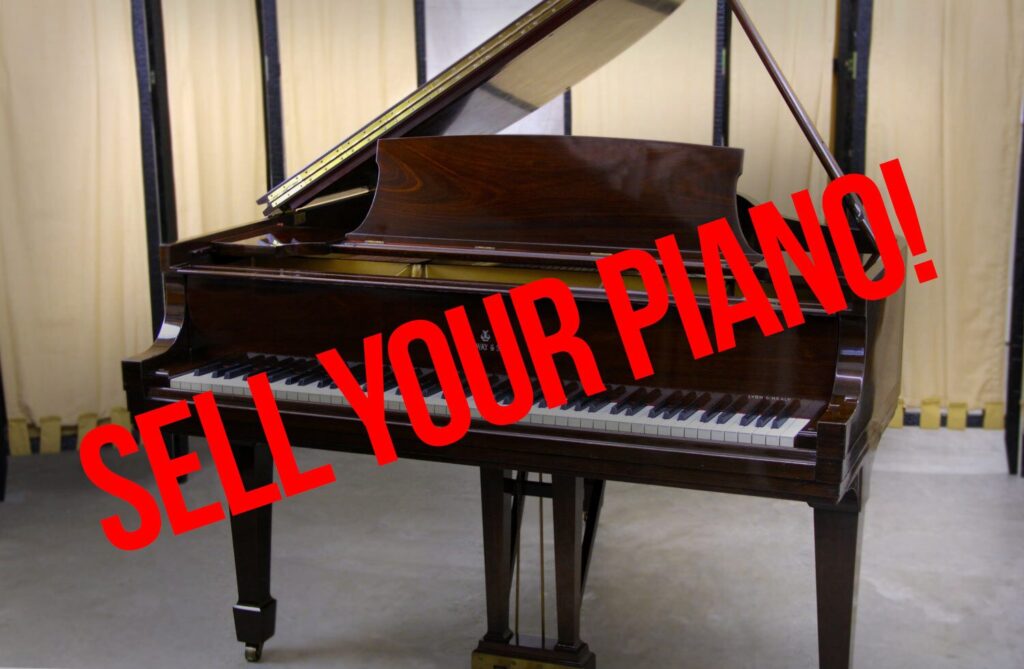
If your piano is in good condition and has market value, selling it can be a viable option. Here’s a few options on how to get rid of a piano:
Online Marketplaces – List your piano on popular online platforms such as Craigslist, eBay, or Facebook Marketplace. Provide detailed information, including clear photos, its history, and any unique features. Be prepared to negotiate the price and arrange transportation for the buyer.
Piano Dealers or Retailers – Contact local piano dealers or retailers to see if they are interested in purchasing your piano. They may be willing to offer you a fair price, especially if the piano is well-maintained.
Consignment Shops – Explore the possibility of consigning your piano with a reputable music store. They will display and sell your piano on your behalf, taking a percentage of the final sale price as a commission.
2. Donating the Piano
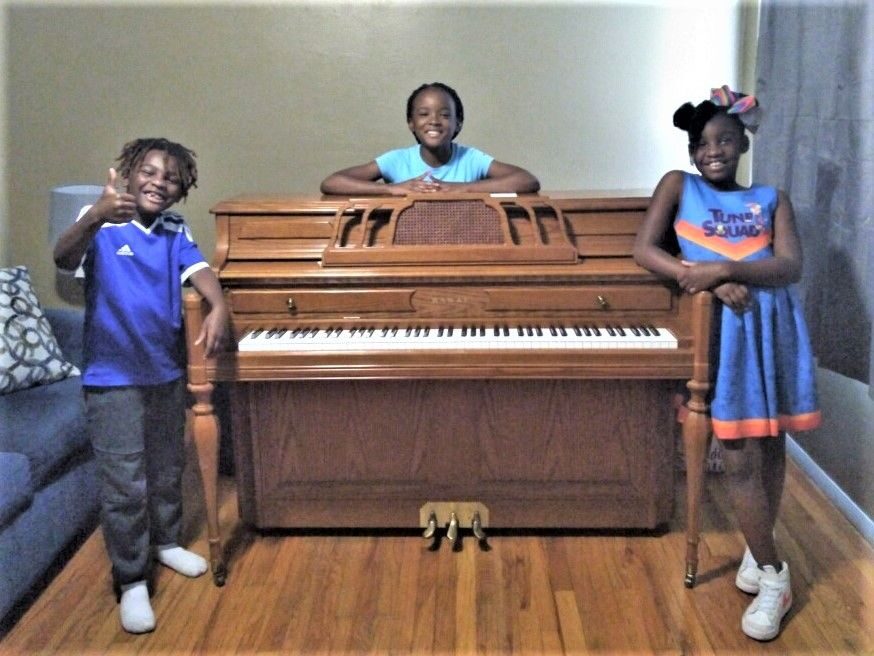
If your piano is no longer marketable or you simply want to give it a new home, donating it can be a rewarding option. Consider the following avenues for piano donation:
Schools and Community Centers – Contact local schools, community centers, or music programs to inquire if they are in need of a piano. Donating to educational or non-profit institutions can provide the opportunity for others to learn and enjoy music.
Charitable Organizations – Research charitable organizations that accept musical instrument donations. These organizations often provide instruments to underserved communities or individuals with limited access to music education.
Churches and Places of Worship – Many churches and places of worship are in need of pianos for their worship services or music programs. Reach out to them and discuss the possibility of donating your piano.
3. Recycling and Repurposing the Piano

If your piano is beyond repair or has no market value, recycling or repurposing it can be a responsible way to dispose of it. Consider the following options when checking on how to get rid of a piano:
Piano Recycling Centers – Some specialized piano recycling centers or scrap metal yards may accept old pianos for recycling. Contact local recycling facilities to inquire about their piano disposal services.
Repurposing – Another option for how to get rid of a piano is repurposing the piano. Get creative and repurpose the piano’s parts or components. The keyboard, strings, and other elements can be transformed into unique furniture pieces, art installations, or even functional objects like bookshelves.
How to get rid of a piano
From finding a new owner who will cherish your piano to exploring environmentally-friendly recycling options, the below options will help you navigate the process of parting ways with your instrument efficiently and responsibly.
1. Piano Removal Services
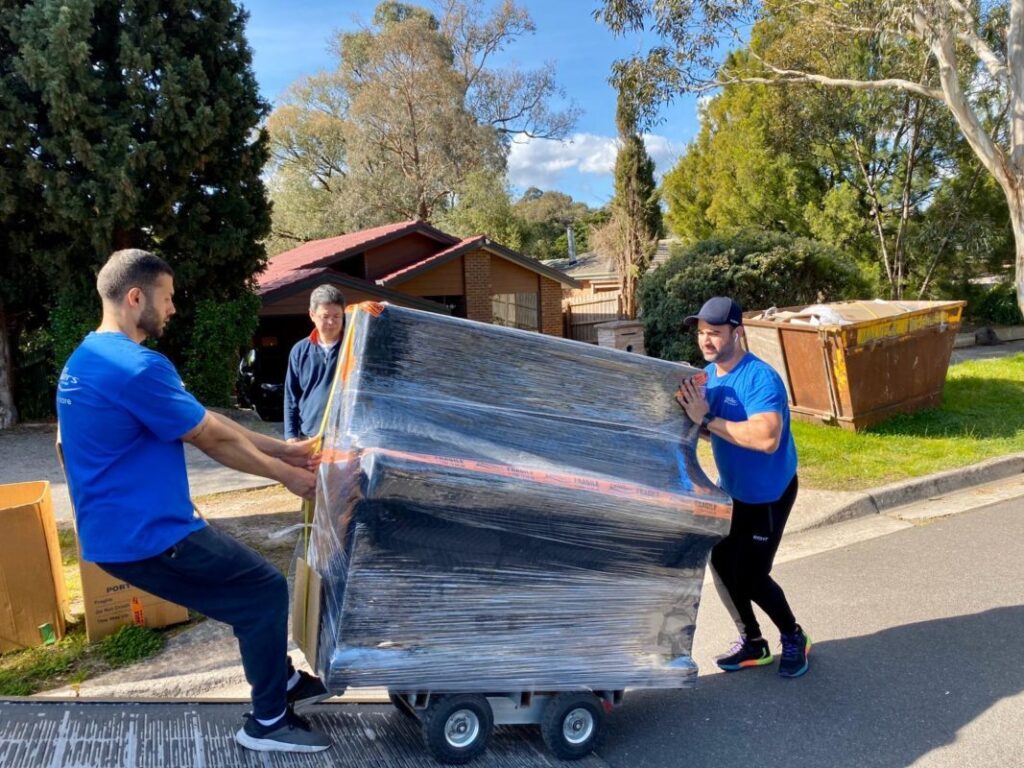
If you find yourself in a situation where no one wants your old piano, or if it is in such poor condition that it cannot be salvaged, here is how to get rid of a piano: you may need to hire a piano removal service. These specialized companies have the equipment and expertise to safely and efficiently remove pianos from your property. They will typically disassemble the piano, recycle the components, and dispose of any non-recyclable parts in an environmentally responsible manner.
While piano removal services may involve a fee, they can save you the hassle of trying to handle the disposal process on your own. Make sure to research and choose a reputable company that adheres to ethical and environmentally friendly practices.
2. Contacting Piano Restoration Societies
Another option for how to get rid of a piano is restoring service and society. Piano restoration societies are dedicated to preserving and restoring vintage and antique pianos. If your old piano is a rare or historical instrument, it may be of interest to these societies. They have the knowledge and skills to bring neglected or damaged pianos back to their former glory.
Reach out to local piano restoration societies or organizations and provide them with details and photographs of your piano. They may be able to assess its potential for restoration and offer guidance on the best course of action.
3. Donating to Schools or Music Institutions

In addition to donating to schools or community centers, you can also consider reaching out to music institutions, such as music academies or conservatories. These organizations often have a need for pianos, even if they require repairs or restoration. They may have the resources and expertise to bring the piano back to life.
By donating your piano to a music institution, you can contribute to the education and artistic development of aspiring musicians. It’s worth contacting local music schools or organizations to inquire about their piano donation policies and requirements.
4. Offering the Piano for Free
If all else fails when finding options on how to get rid of a piano, you can try offering the piano for free to anyone who is willing to take it and arrange for its removal. While this approach requires more effort on your part, it can be a way to ensure that the piano finds a new home and avoids ending up in a landfill.
Consider advertising the piano through online classifieds, community bulletin boards, or local social media groups. Be transparent about the piano’s condition and any repairs it may need. It’s important to note that when offering the piano for free, you may encounter individuals looking to repurpose the piano or use its components for various creative projects.
5. Disposing of the Piano Responsibly
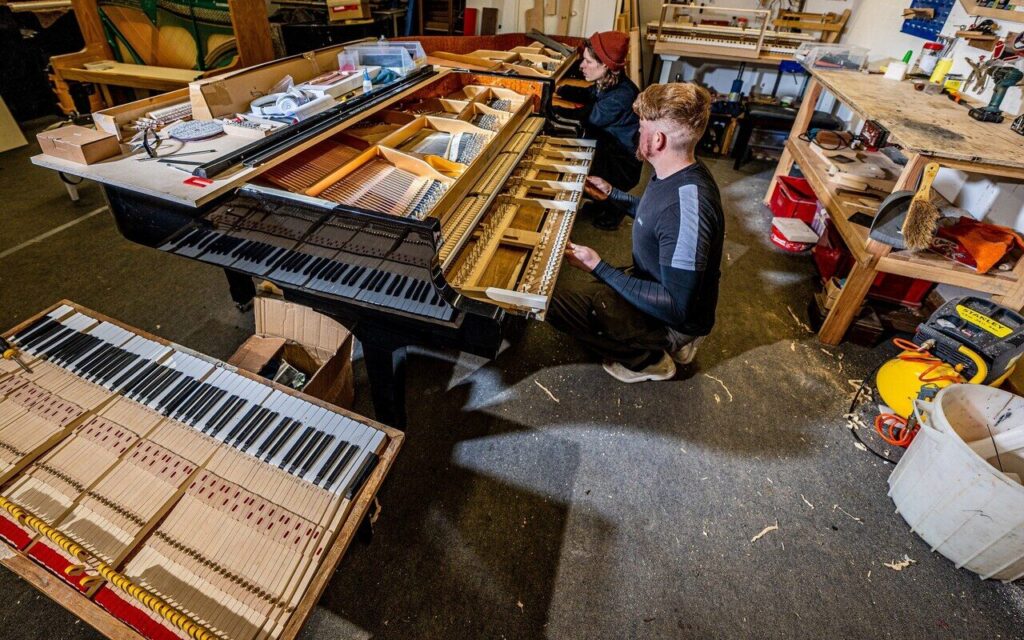
If all options for selling, donating, or repurposing the piano have been exhausted, and you are left with no other choice but to dispose of it, it is crucial to do so responsibly. Improper disposal of a piano can have a negative impact on the environment.
Research local recycling centers or scrap metal yards that accept pianos for recycling. These facilities will be able to handle the piano’s materials properly, ensuring that valuable components are salvaged and non-recyclable parts are disposed of in an environmentally friendly manner.
Remember to remove any hazardous materials, such as lead weights, before sending the piano for recycling. It’s also a good idea to contact the recycling center beforehand to understand their specific requirements and procedures.
6. Repurposing the Piano

If you have a creative side or know someone who does, repurposing the piano can be a unique and artistic way to give it a new lease on life. With some imagination and craftsmanship, the piano’s components can be transformed into functional and decorative pieces.
For example, the piano’s keyboard can be repurposed into a unique key holder or a wall decoration. The strings can be used as a design element in jewelry or mixed media art. The piano’s wooden casing can be upcycled into a bookshelf or a display cabinet. By repurposing the piano, you can preserve its sentimental value and create something new and meaningful.
Conclusion
So, that concludes our guide on how to get rid of a piano effectively. By following the outlined steps, you should find the process much easier to navigate. Whether you decide to sell, donate, or recycle the piano, you’ll be making a responsible choice that not only clears up space but also contributes positively to the environment.
Frequently Asked Questions
Can a piano be scrapped?
Unfortunately, scrapping a piano isn’t a viable option. While the metal components might have some value, typically around $40.00 to $50.00, extracting them can be labor-intensive.
It could take around 4-5 hours to dismantle the piano, transport it, and then process it at a metal yard. For this reason, many people actually charge for piano recycling services rather than offering to scrap them for free.
Do pianos lose value with age?
Yes, pianos can indeed lose value as they age. In fact, they can depreciate by as much as 20 percent in the first year alone, and this downward trend generally continues over time.
However, as the piano approaches its 10th year, the rate of depreciation tends to slow significantly. The value of a piano and the extent of its depreciation depend on various factors, including the brand, condition, maintenance history, and overall market demand.
Is A Free Piano Worth It?
Yes, obtaining a free piano can be worthwhile for a couple of reasons. Firstly, many individuals offer pianos for free because they are no longer using them or have upgraded to a different instrument.
Secondly, some owners may be moving and find it costly to transport the piano to their new location. Professional piano moving services can be expensive, so giving the piano away for free saves them the hassle and expense of relocating it.